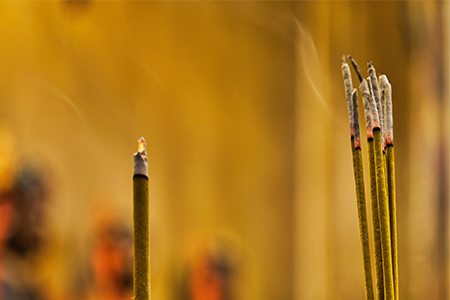
The Chinese traditional ritual for the veneration of the dead typically involves the following:
> – offering of Chinese incense
> – offering of food and drinks
> – burning of paper imitation money, houses, clothes, gold nuggets, etc.
> While most Chinese know that the dead do not eat incense, and cannot share the food and drinks, and definitely do not benefit from any imitation money or possessions we burn, nonetheless, many practice these things with more than a merely sentimental reason; many find themselves in their sorrows secretly hope that by doing these things somehow the dead may benefit and so they themselves may be consoled.
> As a result, regardless if one believes in it or just doing it for sentimental reasons, there is a risk of falling into superstitious practices, as well as misleading others to do so. These superstitious practices are not based on truth. They don’t really benefit the dead. What the dead need most are our prayers, mass offerings, acts of reparation and indulgence offerings, as well as ourselves seeking holiness.
> Some of these practices however, can be christianized. The offering of incense, for one, is a Christian symbol of offering up prayers. We can certainly burn Chinese incense to our ancestors if we use it to express prayers as well as filial respect.
> The offering of food and drinks can be christianized too, if we intend it as a commemoration of what our ancestors loved to eat. Most familial memories took place around food. Food can certainly be a good place to celebrate our family members who are not with us, as long as we are not under any illusion that they need this food now.
> The burning of paper things, however, is not redeemable but is thoroughly superstitious. The dead don’t need it and we by burning anything certainly cannot get to them. What we can do, however, is to replace it with writing prayer intentions and spiritual bouquets for them, as well as things we want them to pray for us, then burn them.


